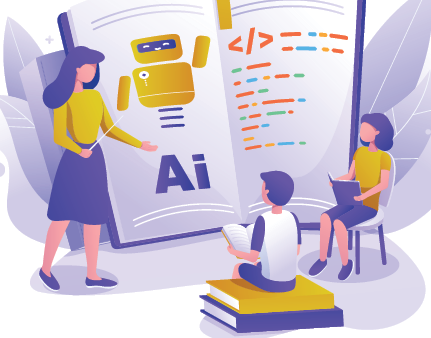
Legislation sponsored by the California Chamber of Commerce to foster artificial intelligence (AI) instruction in California schools awaits action in the California Senate when legislators return from summer recess on August 5.
AB 2876 (Berman; D-Palo Alto) allows California to take a step forward in fostering an AI-literate population and future workforce by teaching AI literacy in schools.
The bill requires the Instructional Quality Commission (IQC) to consider adding media literacy and AI literacy the next time the State Board of Education adopts the instructional materials for the English language arts/English language development curriculum framework.
Fostering AI Literacy
In supporting AB 2876, the CalChamber and a coalition of industry organizations and local chambers of commerce explain that fostering AI literacy means teaching students the skillsets needed to understand and use AI, as well as the limitations, implications and ethical considerations of AI use.
Incorporating this information into existing curricula “will dispel the stigma and mystique of the technology, not only helping students become more discerning and intentional users and consumers of AI, but also better positioning future generations of workers to succeed in an AI-driven workforce and hopefully inspiring the next generation of computer scientists,” the coalition states in a letter.
Widespread Impact
More than any other technological advancement since the advent of the internet, the groups say, “AI is undeniably a transformative technology that will have a widespread impact on virtually all aspects of society and the economy.”
Examples of areas in which AI will have an impact include lifesaving advancements in medicine, optimizing energy usage to address climate change and identifying efficiencies across the economy.
Poll Results
In addition to advancements not yet imagined, however, AI also can be applied in less desirable ways, such as spreading disinformation.
Polling shows the mixed sentiments of Americans.
The Pew Research Center reported in November 2023 that “52% of Americans are more concerned than excited about AI in their daily life, compared with just 10% who say they are more excited than concerned; 36% feel a fix of excitement and concern.”
In a recent CalChamber poll of likely California voters, 27% said they think AI will have a “positive impact” on their life in the next few years, while 35% said “negative impact,” 12% said “no impact” and 27% said they were not sure.
Among parents specifically, 39% said AI will have a positive impact on their child’s life over the next several decades, compared to 40% who said they believe AI will have a negative impact.
Key to Harnessing Benefits
While the mixed sentiments and mistrust are understandable, lack of AI literacy makes it more difficult to counteract the challenges posed by this technology, which in turn only breeds more mistrust.
Public education is the key to breaking that cycle and making AI’s potential benefits a reality while also limiting its negative outcomes, the coalition asserts.
“If California is to successfully harness the tremendous promise of this technology, it is vital that we place greater emphasis and resources on preparing students and arming them with the foundational knowledge and skills necessary to identify, understand, and successfully utilize all kinds of AI that they may encounter in their future workplaces and in their daily lives,” the coalition says.
“Just like reading, writing, and arithmetic, digital literacy and AI literacy are basic skills that children need to develop if they are to succeed in the modern world,” the coalition concludes.

